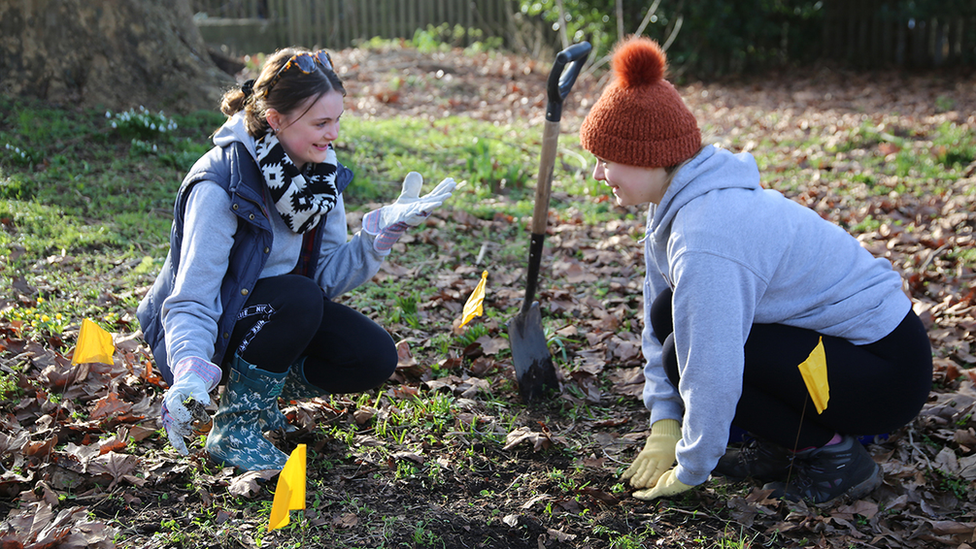Thousands of woodland flowers to boost university biodiversity
- Published

Students and staff were involved in planting the flowers around the campus
Thousands of woodland flowers have been planted around a university campus in an attempt to improve biodiversity.
The University of Worcester said they included 4,500 bulbs and 300 plants around its St John's Campus.
They are a mixture of English bluebells, wild garlic, wild daffodils, wood anemone and primroses.
Lecturer Dr Duncan Westbury said the long-term vision was for "carpets" of bluebells, wild garlic and other plants.
He is the university's principal lecturer in ecology and environmental management and said the flowers would provide a "vital habitat for a range of insects, birds and small mammals".
He also said it was "highly unlikely these species would ever establish naturally from the surrounding area".
The flowers, which were paid for by European funding, were planted in two areas under existing woodland canopies.
The university said it would take at least a year for the plants to find their feet, but they should be flowering next spring.

Follow BBC West Midlands on Facebook, external, Twitter, external and Instagram, external. Send your story ideas to: newsonline.westmidlands@bbc.co.uk
Related topics
- Published20 October 2023

- Published8 February 2023

- Published14 March 2022

- Published28 January 2022
